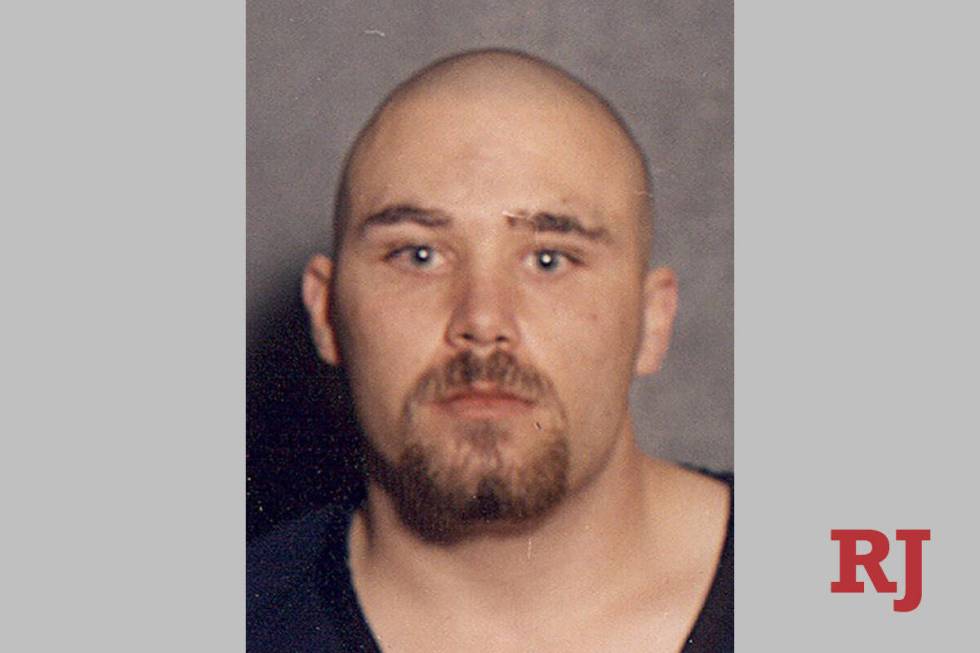Court rejects bid to block DA from pursuing quadruple killer’s execution

The Nevada Supreme Court has denied a petition from condemned killer Zane Floyd’s lawyers to disqualify the Clark County district attorney’s office from pursuing his execution.
Floyd’s lawyers have argued that deputy district attorneys serving in the state Legislature, which voted against a bill abolishing the death penalty this year, constituted a separation-of-powers violation. The petition was brought to the Supreme Court after a lower court judge rejected the bid earlier this year.
The high court ruled that there is not a separation-of-powers violation because the deputy district attorneys who serve in the Legislature had no involvement in prosecuting Floyd or pursuing the execution warrant, Chief Justice James Hardesty wrote in the unanimous ruling released Dec. 23.
Two Clark County deputy district attorneys serve in the Nevada Senate — Nicole Cannizzaro and Melanie Scheible.
Floyd’s lawyers, assistant federal public defenders Brad Levenson and David Anthony, also argued for Clark County District Attorney Steve Wolfson to be disqualified because he “may influence” the deputy district attorneys acting as legislators, and because he “made statements” about the bill to abolish the death penalty.
However, the justices ruled that Wolfson was allowed to speak publicly about pending criminal legislation.
“Floyd has not put forward any evidence establishing that CCDA Wolfson exerted improper authority over his deputies in their capacities as legislators,” Hardesty wrote.
Wolfson did not respond to request for comment on Wednesday.
Floyd’s appeals
Floyd, 46, was sentenced to die for fatally shooting four people and gravely wounding another in a Las Vegas grocery store more than two decades ago. He also was convicted of repeatedly raping a woman before the shooting.
Nevada has indicated that officials want to execute Floyd by late February, before the state’s supply of ketamine is set to expire. Earlier this month, a federal judge heard testimony regarding the state’s proposed drug cocktail, which has never been used in an execution.
Floyd’s lawyers have also filed appeals for his conviction to the Supreme Court, including a petition filed Tuesday.
According to the petition, Floyd should be exempt from the death penalty due to his diagnosed fetal alcohol spectrum disorder, which Levenson and Anthony argued is the “functional equivalent” of an intellectual disability.
The petition also challenged Nevada’s rules for death row inmates seeking clemency from the Board of Pardons Commissioners, which requires a prisoner to exhaust all judicial appeals before applying for a pardon, according to Floyd’s lawyers.
The requirements “ignore that an individual on death row is usually litigating up until the last moment leading to their execution,” the petition said. “It is unlikely that a death row inmate, such as Mr. Floyd, would not have an appeal or other court proceeding left, such as litigation with respect to an execution warrant, until they are strapped to the gurney for execution.”
Potential conflicts of interest
The Supreme Court has yet to rule in another case questioning whether prosecutors should be allowed to serve in the state Legislature. The issue was raised again after a lower court last year threw out a pair of DUI convictions prosecuted by Scheible.
During arguments heard in September, Kevin Powers, the chief litigation counsel for the Legislative Counsel Bureau, compared deputy prosecutors to staff attorneys who assist judges, while the “power to prosecute” is at the discretion of the elected district attorney.
But justices questioned the comparison, because elected district attorneys in large jurisdictions send deputy district attorneys to prosecute cases and argue issues before judges.
“How can there not be a conflict with them seeking to enact laws?” Justice Douglas Herndon said in September.
The Supreme Court has not indicated when a decision in that case would be made.
Last year, a conservative think tank filed suit against lawmakers who simultaneously work as public employees, including Scheible and Cannizzaro. The high court has also yet to decide on that case.
Contact Katelyn Newberg at knewberg@reviewjournal.com or 702-383-0240. Follow @k_newberg on Twitter.